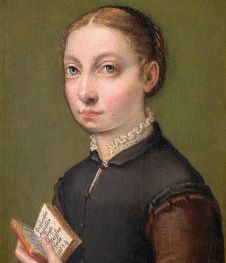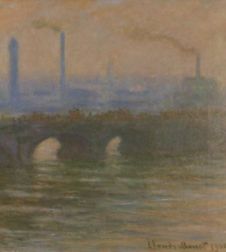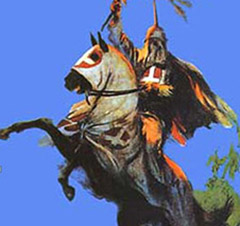
WHY HISTORY?
Open Your Eyes to the Past
Inquire into the past, asking questions about people and places and events whose histories still inform our lives in the present. How did African Americans, born in bondage, form new identities and communities after the end of slavery in the United States? In what sense is modern Asia “modern”? Explore the courses below to see other examples of historical inquiry questions.
Investigate the raw materials of the past and learn how history is made. What is history and how is it documented in various forms of human expression—art, artifacts, music, and texts? History majors study all kinds of primary sources to think critically about different perspectives on human experience.
Inspire connections through time. Why have relations among humans across the globe become so complex since ancient times? How have human ideas about the world, nature, and the cosmos changed? History majors develop global knowledge and understanding about human experience and make connections between the ancient and more recent pasts.
Interpret the past yourself by writing an original work of history. All history majors take a capstone course in historical research to create an original interpretation of primary source materials. Recent topics for the research seminars include In the Wake of Columbus, Unraveling America: 1962-1972, Doing Local History, The Great Irish Famine, and American Nationalism and the Second Founding.
Course Highlights

Were the crusades a clash of civilizations?
Dr. Richard Barton’s course “The Crusades” (HIS 312) examines the European movement during its classical period, from the call to the first crusade at Clermont in 1095 to the failure of the last serious crusade in Egypt in 1250. Any understanding of the crusades must begin with an understanding of Islam, along with and understanding medieval Christianity. In this course, students learn not only what motivated European crusaders to undertake their armed invasions of the Near East, but also how Muslims understood the crusaders, and how these incursions affected Muslim society and Islamic notions of Jihad. By placing the crusading movement and its outcomes in its proper historical context, the course will inform students about the social and economic conditions that gave rise to crusades, the ideology of the crusaders, and structure of the society they hoped to construct in the Near East. Students will also understand the distinctions between the Christian and Islamic civilizations of the Middle Ages and those of today.

Did the Renaissance discover the individual?
In 1860 the Swiss scholar Jacob Burckhardt made a bold pronouncement. In The Civilization of the Renaissance in Italy he explained that during the Middle Ages "human consciousness...lay dreaming or half awake beneath a common veil...of faith, illusion, and childish prepossession, through which the world and history were clad in strange hues. Man was conscious of himself only as a member of a race, people, party, family, or corporation...In [Renaissance] Italy this veil first melted into air...man became a spiritual individual and recognized himself as such." Can Burckhardt's claim about the rise of individualism be sustained? In Dr. Jodi Bilinkoff's senior capstone course, "Self and Society in Europe, 1350-1700," (HIS 411B) students examine biographical and autobiographical texts, which were produced in in great variety and abundance throughout early modern Europe and its colonies. At the heart of this inquiry is the construction of identities, or how people perceive and present their own lives or the lives of others. Each student will choose a text or texts to analyze and contextualize for a research paper that engages this cultural impulse to record and remember lives.

What role does nature play in history?
Human history cannot be thoroughly understood without including the role of the environment. At the most basic level, as biological beings, people are part of nature and depend on it for food, drink, shelter, clothing, and more. Throughout human history, nature has provided opportunities for human societies to exploit its resources, while simultaneously limiting what people can achieve. People in turn reshape nature to fit human needs, altering the environment and the future of all living beings. Students investigate the intertwined histories of people and nature in Dr. Greg O'Brien's courses on environmental history (HIS 209: World Environmental History; HIS 323: American Indians and Nature; and HIS 334: U.S. Environmental History).

What can American Indian history teach us about the American past?
American Indian history provides students a different way to interpret the American past. The human history of North America is ancient; Indian peoples lived here for tens of thousands of years before Europeans arrived and they survive to the present day. Native America was and is diverse, with hundreds of languages, cultures, religions, and lifeways. The America that Europeans encountered beginning in the 1500s was shaped by Native ways of living on the land. Native people were one of the principal determinants of the continent's history even after contact with Europeans. Students explore such revelations in Dr. Greg O’Brien's courses on American Indian history (HIS 333: American Indian History to 1840; HIS 322: American Indian History Since 1840; and HIS 323: American Indians and Nature).

How did pirates make history?
Dr. Linda Rupert’s course, “Pirates of the Caribbean: The Real Story,” introduces students to the fascinating role of corsairs, buccaneers, pirates, and privateers in shaping the history of the early modern Caribbean. From the exploits of Francis Drake, to Dutchman Piet Heyn’s capture of the Spanish silver fleet, to Henry Morgan’s brief stint as Lt. Governor of Jamaica, Caribbean pirates have been seen as both villains and heroes. This course analyzes how pirates influenced the emerging colonial economies, societies, and cultures of the Caribbean from the sixteenth through the eighteenth centuries.

How does ideology shape historical memory?
In Dr. Mark Elliott’s senior capstone course, “Reconstruction in History and Memory,” (HIS 411A) students examine the process of historical memory itself. No period of American history has been as thoroughly subjected to propaganda and politicized interpretations as the period after the Civil War. From the films Birth of A Nation and Gone with the Wind to the histories of William Dunning and Claude Bowers, Reconstruction was grossly distorted in both popular culture and professional history during the segregation era. Using this topic to better understand the ideological stakes that can be involved in the recounting of history, students explore both the history and the historical memory of Reconstruction while weighing popular and scholarly portrayals against original primary sources from the era. Students then undertake an original research project of their own choosing, collecting and interpreting primary sources to produce their own original research in history.